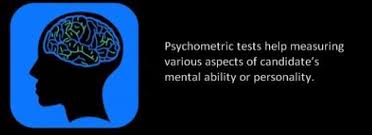It’s no wonder that personality profiles have turned out to be a standard assessment tool in the hiring process for many companies. Hiring managers and recruiters understand full well that resume screening, interviews, and reference checks are not a very active or objective means for making hiring decisions.
All that being said, some organizations continue to struggle with recruitment, so they tend to use personality assessment in their hiring decisions. The most probable reason for that is simple: it needs to be in the right hands to get the great results. Used inappropriately, both of these tools can hurt you. The personality profiles are complex tools. And the information they provide is dark and not always easy to interpret. We humans are dark, complex creatures ourselves. To make their tools easier for HR professionals to use, the tool providers have interpreted the computer generated reports to improve readability. The downside to simplicity, however, is that simplicity reduces the depth of information and the power of the tool. Less granular indicates less detail. It often generates challenges to drawing useful and accurate conclusions that are helpful in the workplace.
They should be approved in the use of the assessment tool, and they should be experienced in imparting insight and value. The practitioner creates a strong profile of the candidate or an effective action plan for employee development. Some assessments offer many raw scores, some of which may or may not contradict other scores on the same assessment.
- A certified assessments practitioner will realize how to address some of the extraneous information on the computer generated report. Also, they will be familiar with trends and patterns that imply certain strengths or blind-spots in the individual. Most importantly, two individuals with very different personality profiles can still both be satisfied in the same role. The practitioner will help recognize these scenarios so that HR does not overlook and miss out on great talent.
- Analysis of learning abilities and talents. This is one of the most important aspects of the candidate assessment and is also powerful for employee development as well. The result is a strong profile of the person’s communications skills, interpersonal skills, emotional intelligence, work ethic, commitment levels, and leadership potential. These tools are useful for candidate assessment, but even more powerful for talent management and succession planning.
- Personality Assessments provide clarity on where the drive and passion are in an individual, and so it helps ascertain how well a fit a person is for their role and career direction. This is one of the most crucial assessments to use when trying to determine the likelihood of success of any individual in a given designation. It is also useful in the midst of the talent management lifecycle to make sure that the individual is on the relevant career path within your organization.
But it is very important to note that it is possible to have two people with very different assessment profiles that are both competent of succeeding in the same role. Your assessments practitioner will have the expertise and experience to identify those and ensure great hiring decisions.
Visit www.cengrow.com for more.



